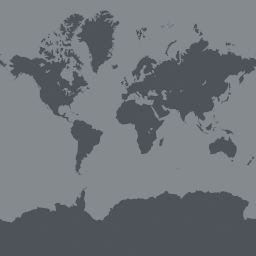Conservation and management of wetlands and their biodiversity has been identified as a priority for action in international conventions and national policies. Over the past 20 years, Tanzania has been running a Sustainable Wetlands Management Program (SWMP) aimed at sustainable management and use of wetlands, which account for 10 per cent of the land area. The program has established four wetlands of international importance based on their significance in biodiversity as defined by the Ramsar convention: Lake Natron basin, Malagarasi-Muyovozi Wetlands, Kilombero Valley Floodplains and Rufiji-Mafia-Kilwa Marine Ramsar Site.
The establishment of the wetland sites has led to the generation of biodiversity occurrence data, however, this data is held across a variety of sources and in incompatible formats, making it difficult to access or use for sustainable management of the Ramsar wetlands.
This project will create an inventory of wetland biodiversity data by type, format, digitization state, accessibility and source, and ensure its publication to GBIF.org and TanBIF portals. The project team will target holders of biodiversity data from the Ramsar sites for training on how to publish and access data from GBIF.org, as the strategic option for sustainability of data management in the wetland sites. Using data mobilized in the project, the team will analyse and help develop a checklist of species of the Tanzanian Ramsar Sites.
Project Progress
To enable the collation and compilation of biodiversity data from Ramsar sites, a Biodiversity Data Capture tool has been prepared. Biodiversity data has been inventoried for two key data holders relating to Ramsar sites at Kilombero and Malagarasi-Muyovozi. Occurrence data for birds in the Kilombero Ramsar site has been collated alongside a Plant checklist for species found at Kilombero and Malagarasi-Muyovozi Ramsar sites.
The project will continue to compile data with plans to publish the data according to Darwin Core standards across all four of the Ramsar sites at the end of the 2018. Project efforts will also focus on training staff from across the participating Ramsar sites using the GBIF IPT.
To date, the project has published a dataset on the GBIF portal for bird species at the Ramsat Site of Kilombero. A poster on birds of the Kilombero was created to to increase awareness in outreach materials. Also, three DarwinCore Archive checklists are ready, but not yet published, one on three species for Kilombero Ramsar, another on plant species of Malagarasi-Moyowosi Ramsar site and the third on fauna species of Malagarasi-Moyowosi Ramsar site.
The project convened IPT training on biodiversity data mobilization and publishing at Sokoine University of Agriculture, Morogoro, Tanzania, in March 2019. A total of 20 participants attended, some postgraduate students, junior staff, Natural Resource staff from the government and stakeholders attended, including the holders of data from Ramsar sites and other wetlands in Tanzania.
During this project, the Tanzania Biodiversity Informatics Group (TanBIG) was formed. The group consists of 25 young professional members from Sokoine Univeristy of Agriculture, who are dedicated to publish biodiversity data and interested in co-management of knowledge on biodiversity informatics.


